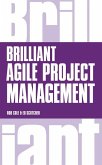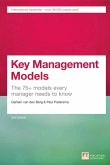In practice we see that projects often fail. People disagree, they change their minds, they learn as work progresses. The project develops into an important and influential organization with its own opinions. Researchers have for a long time pointed out the need for new approaches to project management.
This book looks at project management from an organizational perspective. A project is a temporary organization, established by its base organization to carry out an assignment on its behalf. From this perspective, project management concerns basically the relationship between the permanent and the temporary organization. Inherent in the perspective is an understanding of the projects most important purpose, to facilitate another organizations progress. The assignment is about change and within a certain time limit.
The book discusses how the foundation of the project, planning, organizing, controlling, leadership in an organizational perspective. There is not one right way of doing it: therefore the book is inviting to rethinking traditional ways and offering new thoughts.
A fundamental feature of the book is extensive references to the works of others. The reader is given the base for further studies of the topics that are covered.
Backcover
In practice, we see that projects often fail: people disagree, they change their minds, they learn as a work progresses. The project develops into an important and influential organisation with its own opinions, needs and challenges. Researchers have, for a long time, pointed out the need for new approaches to project management, to take into account the specific demands of individual projects.
Erling S. Andersens new book examines project management from an organisational perspective. A project is a temporary organisation, established by its base organisation to carry out an assignment on its behalf. From this perspective, project management focusses on the relationship between the permanent and the temporary organisation. Inherent in this perspective is an understanding of the projects most important purpose, to facilitate another organisations progress. The assignment is about change, often within a certain time limit. Rethinking Project Management discusses the foundation of the project, the planning, essential organising, control and leadership, all within an organisational perspective. There is no right way to tackle projects this book invites readers to rethink traditional methods and theories and offers new perspectives on every aspect of the project management process.
A key title for any student of project management, Rethinking Project Management provides a unique grounding in the essentials of the subject, as well as a base for further study of contemporary issues in the field.
Erling S. Andersen is Professor of Project Management and Information Systems,
BI Norwegian School of Management, Oslo.
List of figures
List of tables
Preface
Publisher's acknowledgements
Chapter 1 The project concept and the organisational perspective
1.1 Projects and perspectives
1.2 The task perspective
1.2.1 Definition and main ideas
1.2.2 Theoretical base
1.2.3 Criticisms of task perspective
1.3 The organisational perspective
1.3.1 Definition and main ideas
1.3.2 Theoretical base
1.4 A universal project management theory or several contingency theories?
1.4.1 Types of project
1.4.2 Life cycle models
1.4.3 How this affects what follows
1.5 The project assignment
1.5.1 The rationale of the project stability and change at the same time
1.5.2 Dividing responsibilities between the project and base organisation
1.5.3 What sort of changes is possible in a base organisation?
1.5.4 Pursuing different types of change at the same time PSO
1.5.5 Evolutionary development
1.5.6 Resistance to change
1.5.7 The evolving task
1.6 Projects and time
1.6.1 Cyclical, linear and alternating time
1.6.2 Temporal focus and temporal depth
1.6.3 Polychronicity and monochronicity
1.6.4 Scheduling of activities entrainment of processes
1.6.5 Coping with stress
1.7 A project management theory based on the organisational perspective
1.7.1 Concepts, theories and methods
1.7.2 A project management theory
1.7.3 Theory elaboration
Notes to Chapter 1
Chapter 2 The foundation of the project
2.1 Strategies affecting projects
2.1.1 Change strategy: punctuated equilibrium
2.1.2 Change strategy: event pacing or time pacing
2.1.3 Positioning strategy
2.1.4 Implementation strategies
2.2 Project uncertainty
2.2.1 The concept of uncertainty
2.2.2 Attitudes to uncertainty
2.2.3 Uncertainty management strategies
2.3 Project stakeholders
2.3.1 Salience
2.3.2 A strategy for dealing with stakeholders
2.3.3 Constructing a coalition the contribution/reward model
2.4 Establishing the project
2.4.1 Business case
2.4.2 Project mandate
2.5 Project mission, goals and success criteria
2.5.1 Missionand goals
2.5.2 Elaborating the mission mission breakdown structure
2.5.3 Project success criteria
2.5.4 Moving targets
2.6 Project scope and delimitations
2.6.1 Freedom of action
2.6.2 Project responsibilities
2.6.3 Project completion date
2.7 Giving the project an identity
2.7.1 Project identity
2.7.2 Naming the project
2.7.3 Project owner
2.7.4 Project steering committee
2.7.5 Project manager
2.7.6 Project background
2.8 Value of project
2.8.1 Project benefits
2.8.2 Project costs
2.8.3 Value = Benefits Costs
Notes to Chapter 2
Chapter 3 Planning the project
3.1 The planning process
3.1.2 Project planning as a collective effort
3.1.3 The dilemma of project planning
3.1.4 Project planning on three levels
3.1.5 The importance of project planning
3.2 Project startup
3.3 Milestones
3.3.1 Concept of milestone
3.3.2 Controllability of milestones
3.3.3 The attractiveness of milestones
3.4 Milestone plan
3.4.1 Milestone plan philosophy
3.4.2 Focus areas result paths in the milestone plan
3.4.3 Time scheduling entrainment as the guiding light
3.5 The detailed planning
3.5.1 Network plans
3.5.2 The planning fallacy and other problems
3.5.3 Buffers in plans
3.6 Uncertainty assessments of plans
3.6.1 The uncertainty assessment process
3.6.2 The great dilemma in uncertainty management
3.7 IT support
Notes to Chapter 3
Chapter 4 Organising the project
4.1 What sort of organisation is a project?
4.1.1 Action organisations and political organisations
4.1.2 The projects organisational dilemma
4.2 Allocating responsibilities in the project
4.2.1 Responsibility concepts
4.2.2 Responsibility charts
4.2.3 Project work roles
4.2.4 Role conflict and role ambiguity
4.2.5 Conflicts between family and work
4.2.6 Do people comply with the responsibility chart?
4.3 The projects organisational structure
4.3.1 The external organisational solutions
4.3.2 Pros and cons of the matrix organisation
4.3.3 Internal organisational structures
4.4 Resource allocation to the project
4.4.1 Resource allocation syndrome
4.4.2 Resource allocation as a negotiation process
4.5 Project team
4.5.1 Recruiting team members
4.5.2 Personality and its impact
4.5.3 The importance of team roles
4.5.4 The significance of external contact
4.5.5 Team development
4.5.6 The virtual team
4.6 Project support office
4.7 Organisational culture in the project and base organisation
4.7.1&
Erling S. Andersen's new book examines project management from an organisational perspective. A project is a temporary organisation, established by its base organisation to carry out an assignment on its behalf. From this perspective, project management focusses on the relationship between the permanent and the temporary organisation. Inherent in this perspective is an understanding of the project's most important purpose, to facilitate another organisation's progress.
Hinweis: Dieser Artikel kann nur an eine deutsche Lieferadresse ausgeliefert werden.
This book looks at project management from an organizational perspective. A project is a temporary organization, established by its base organization to carry out an assignment on its behalf. From this perspective, project management concerns basically the relationship between the permanent and the temporary organization. Inherent in the perspective is an understanding of the projects most important purpose, to facilitate another organizations progress. The assignment is about change and within a certain time limit.
The book discusses how the foundation of the project, planning, organizing, controlling, leadership in an organizational perspective. There is not one right way of doing it: therefore the book is inviting to rethinking traditional ways and offering new thoughts.
A fundamental feature of the book is extensive references to the works of others. The reader is given the base for further studies of the topics that are covered.
Backcover
In practice, we see that projects often fail: people disagree, they change their minds, they learn as a work progresses. The project develops into an important and influential organisation with its own opinions, needs and challenges. Researchers have, for a long time, pointed out the need for new approaches to project management, to take into account the specific demands of individual projects.
Erling S. Andersens new book examines project management from an organisational perspective. A project is a temporary organisation, established by its base organisation to carry out an assignment on its behalf. From this perspective, project management focusses on the relationship between the permanent and the temporary organisation. Inherent in this perspective is an understanding of the projects most important purpose, to facilitate another organisations progress. The assignment is about change, often within a certain time limit. Rethinking Project Management discusses the foundation of the project, the planning, essential organising, control and leadership, all within an organisational perspective. There is no right way to tackle projects this book invites readers to rethink traditional methods and theories and offers new perspectives on every aspect of the project management process.
A key title for any student of project management, Rethinking Project Management provides a unique grounding in the essentials of the subject, as well as a base for further study of contemporary issues in the field.
Erling S. Andersen is Professor of Project Management and Information Systems,
BI Norwegian School of Management, Oslo.
List of figures
List of tables
Preface
Publisher's acknowledgements
Chapter 1 The project concept and the organisational perspective
1.1 Projects and perspectives
1.2 The task perspective
1.2.1 Definition and main ideas
1.2.2 Theoretical base
1.2.3 Criticisms of task perspective
1.3 The organisational perspective
1.3.1 Definition and main ideas
1.3.2 Theoretical base
1.4 A universal project management theory or several contingency theories?
1.4.1 Types of project
1.4.2 Life cycle models
1.4.3 How this affects what follows
1.5 The project assignment
1.5.1 The rationale of the project stability and change at the same time
1.5.2 Dividing responsibilities between the project and base organisation
1.5.3 What sort of changes is possible in a base organisation?
1.5.4 Pursuing different types of change at the same time PSO
1.5.5 Evolutionary development
1.5.6 Resistance to change
1.5.7 The evolving task
1.6 Projects and time
1.6.1 Cyclical, linear and alternating time
1.6.2 Temporal focus and temporal depth
1.6.3 Polychronicity and monochronicity
1.6.4 Scheduling of activities entrainment of processes
1.6.5 Coping with stress
1.7 A project management theory based on the organisational perspective
1.7.1 Concepts, theories and methods
1.7.2 A project management theory
1.7.3 Theory elaboration
Notes to Chapter 1
Chapter 2 The foundation of the project
2.1 Strategies affecting projects
2.1.1 Change strategy: punctuated equilibrium
2.1.2 Change strategy: event pacing or time pacing
2.1.3 Positioning strategy
2.1.4 Implementation strategies
2.2 Project uncertainty
2.2.1 The concept of uncertainty
2.2.2 Attitudes to uncertainty
2.2.3 Uncertainty management strategies
2.3 Project stakeholders
2.3.1 Salience
2.3.2 A strategy for dealing with stakeholders
2.3.3 Constructing a coalition the contribution/reward model
2.4 Establishing the project
2.4.1 Business case
2.4.2 Project mandate
2.5 Project mission, goals and success criteria
2.5.1 Missionand goals
2.5.2 Elaborating the mission mission breakdown structure
2.5.3 Project success criteria
2.5.4 Moving targets
2.6 Project scope and delimitations
2.6.1 Freedom of action
2.6.2 Project responsibilities
2.6.3 Project completion date
2.7 Giving the project an identity
2.7.1 Project identity
2.7.2 Naming the project
2.7.3 Project owner
2.7.4 Project steering committee
2.7.5 Project manager
2.7.6 Project background
2.8 Value of project
2.8.1 Project benefits
2.8.2 Project costs
2.8.3 Value = Benefits Costs
Notes to Chapter 2
Chapter 3 Planning the project
3.1 The planning process
3.1.2 Project planning as a collective effort
3.1.3 The dilemma of project planning
3.1.4 Project planning on three levels
3.1.5 The importance of project planning
3.2 Project startup
3.3 Milestones
3.3.1 Concept of milestone
3.3.2 Controllability of milestones
3.3.3 The attractiveness of milestones
3.4 Milestone plan
3.4.1 Milestone plan philosophy
3.4.2 Focus areas result paths in the milestone plan
3.4.3 Time scheduling entrainment as the guiding light
3.5 The detailed planning
3.5.1 Network plans
3.5.2 The planning fallacy and other problems
3.5.3 Buffers in plans
3.6 Uncertainty assessments of plans
3.6.1 The uncertainty assessment process
3.6.2 The great dilemma in uncertainty management
3.7 IT support
Notes to Chapter 3
Chapter 4 Organising the project
4.1 What sort of organisation is a project?
4.1.1 Action organisations and political organisations
4.1.2 The projects organisational dilemma
4.2 Allocating responsibilities in the project
4.2.1 Responsibility concepts
4.2.2 Responsibility charts
4.2.3 Project work roles
4.2.4 Role conflict and role ambiguity
4.2.5 Conflicts between family and work
4.2.6 Do people comply with the responsibility chart?
4.3 The projects organisational structure
4.3.1 The external organisational solutions
4.3.2 Pros and cons of the matrix organisation
4.3.3 Internal organisational structures
4.4 Resource allocation to the project
4.4.1 Resource allocation syndrome
4.4.2 Resource allocation as a negotiation process
4.5 Project team
4.5.1 Recruiting team members
4.5.2 Personality and its impact
4.5.3 The importance of team roles
4.5.4 The significance of external contact
4.5.5 Team development
4.5.6 The virtual team
4.6 Project support office
4.7 Organisational culture in the project and base organisation
4.7.1&
Erling S. Andersen's new book examines project management from an organisational perspective. A project is a temporary organisation, established by its base organisation to carry out an assignment on its behalf. From this perspective, project management focusses on the relationship between the permanent and the temporary organisation. Inherent in this perspective is an understanding of the project's most important purpose, to facilitate another organisation's progress.
Hinweis: Dieser Artikel kann nur an eine deutsche Lieferadresse ausgeliefert werden.








